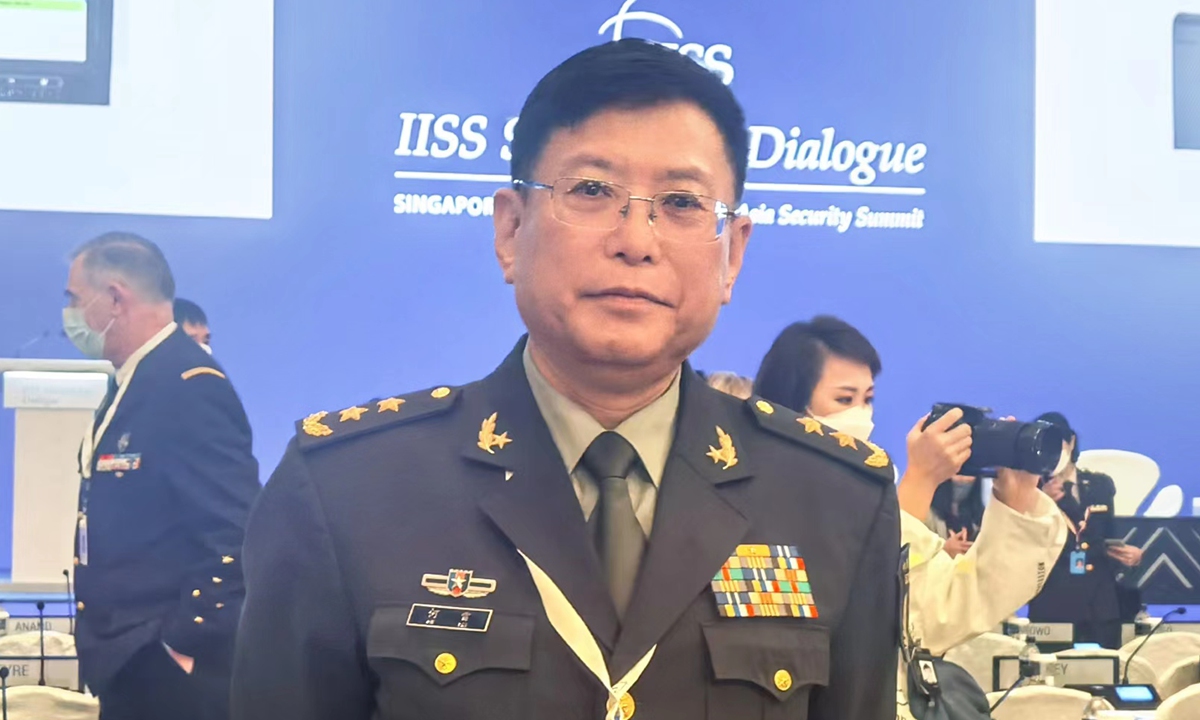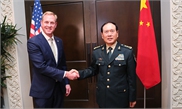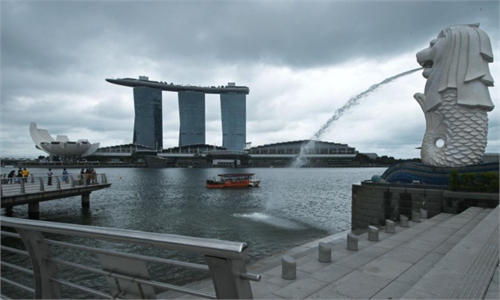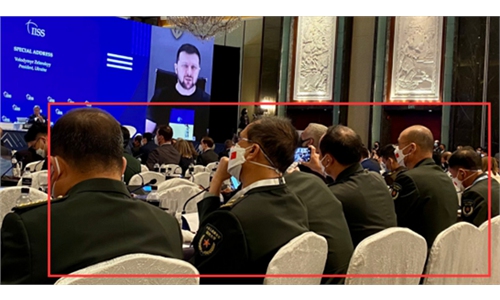Practices and results of China’s military diplomacy in the new era at the 19th Shangri-La Dialogue

Lieutenant General He Lei attending the 19th Shangri-La Dialogue in Singapore Photo: Courtesy of He Lei
During the 19th Shangri-La Dialogue held in Singapore between June 10 to 12, the delegation of the Chinese People's Liberation Army (PLA), headed by the State Councilor and Defense Minister General Wei Fenghe, won a hard-fought battle of military diplomacy.Declaration of China's principles and positions to spread a strong voice from Chinese military
Wei delivered a speech addressing China's vision of regional order on June 12, in which he emphasized that China will uphold and practice genuine multilateralism to safeguard regional peace and stability, in addition to building a community with a shared future for mankind.
On the Taiwan question, Wei said that those who pursue "Taiwan independence" in an attempt to split China will definitely come to no good end, and foreign interference is doomed to failure.
"If anyone dares to secede Taiwan from China, we will not hesitate to fight, we will fight at all costs," Wei said, "No one should ever underestimate the resolve and capabilities of China's armed forces to defend the country's sovereignty and territorial integrity."
Wei's remark offered a detailed explanation of China's defense policy and stance and showed the China's distinctive attitude toward regional and global issues.
All members of the Chinese PLA delegation attended the event as advocates: They made full use of occasions and forms to voice out, promote and explain China's ideas actively. They had fought a "people's war" of public opinion and promotion, further expanding the Chinese military's international influence.
Refutation of groundless accusations to resolutely safeguard China's interests
Apart from Wei, politicians from many other countries delivered speeches at the 19th Shangri-La Dialogue. However, some explicitly or implicitly stated in their address how China "threatens regional and global peace and stability."
Among them are Japanese Prime Minister Fumio Kishida, who talked about the "China threat" in the Asia-Pacific region without directly mentioning China, and US Secretary of Defense Lloyd Austin, who blatantly made groundless accusations targeting China over many regional issues, including the Taiwan question.
Soon after all these addresses, the Chinese delegation held organized press briefings to refute false accusations from those politicians, offering clear evidence and criticizing the US' Indo-Pacific Strategy as serving only Washington's interests and going against the will of regional actors.
Wei met Austin on June 10 on the sidelines of the Shangri-La Dialogue, where Wei notably reaffirmed China's firm stance on the Taiwan question. At the press conference after the meeting, a spokesperson for China's Ministry of National Defense gave a comprehensive outline of the talks between Chinese and US defense chiefs, making clear China's positions and core principles.
All members of the Chinese delegation are fighters: They took it as their duty to defend China's national interests and refute groundless accusations. They were brave and adept in carrying out the struggle. Whenever and wherever they faced words or actions that jeopardized China's interests and reputation, they refuted them with no mercy and clarified the country's positions with reason.
Interaction with other delegations to expand the results of military diplomacy
Military diplomacy is an important part - or even it could be regarded as the ballast of a country's foreign policy. China's military diplomacy in the new era has important missions focused on active engagement in cooperation with the defense departments and militaries from other countries, enhancement of military mutual trust, and establishment of friendly relations.
To carry out these missions, the Chinese delegation participated in exchanges in all forms with other participants during the 19th Shangri-La Dialogue.
Prior to the dialogue, Wei met and had a friendly conversation with both the Singaporean prime minister and defense minister. After the forum began, the Chinese delegation held a meeting with defense chiefs from 10 countries, including the US, Japan, South Korea, Indonesia, Malaysia, and Cambodia, as well as organizers of the dialogue. These activities aimed to further promote China's policy and ideas, clarify its principles and stances, deepen understanding, and enhance friendships with counterparts from around the world.
All members of the Chinese delegation are ambassadors: No matter where and when, they treated other sides with manner, and actively exchanged words to clear up doubts. They had shown how open-minded, civilized, and rational Chinese military officers can be.
At the 19th Shangri-La Dialogue, the Chinese PLA delegation practiced military diplomacy vividly and achieved some notable results. This can only be realized under the guidance of Xi Jinping Thought on Diplomacy, the favorable external environment shaped by China's diplomatic practice, the country's development, and the strengthening of its military.
Under the absolute leadership of the Party, the PLA must fully implement Xi Jinping thought on Strengthening the Military and Xi Jinping Thought on Diplomacy and actively participate in international multilateral security and defense forums and engage in other military diplomacy activities to make a greater contribution to the building a community with a shared future for mankind and maintaining regional and world peace and stability.
The author is a deputy to the 13th NPC, PLA lieutenant general and former vice president of the PLA Academy of Military Sciences. opinion@globaltimes.com.cn



